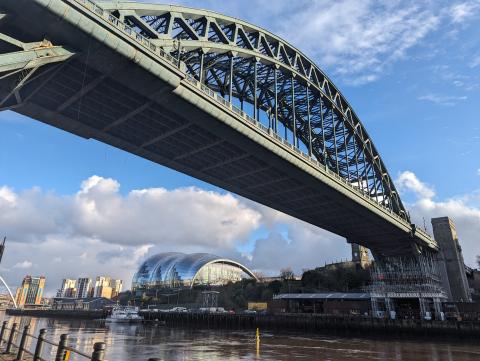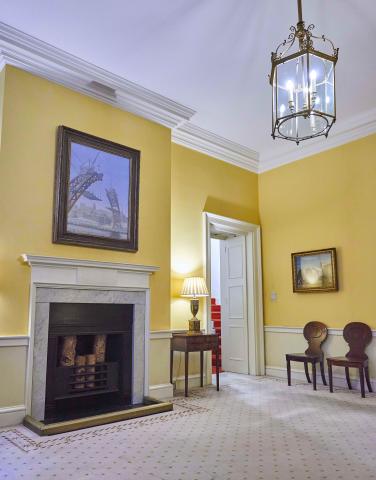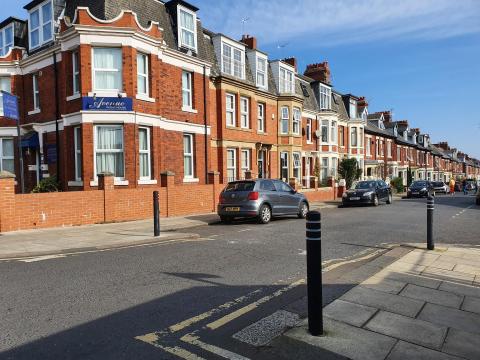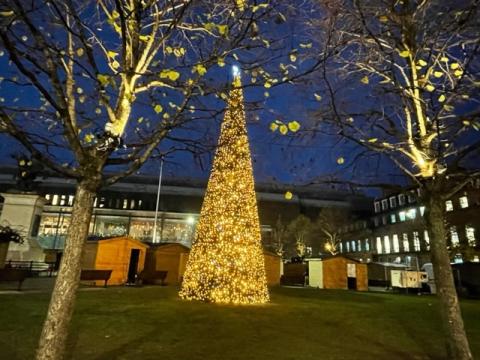16 July 2021
| | 3 min readClean Air Zone planned for next summer
A planned Clean Air Zone to cut harmful traffic emissions, improve air quality and protect people’s health could be put in place next summer.

A report to be considered by cabinet members at Newcastle and Gateshead councils later this month sets out updated proposals and a revised timeline for introducing them.
The plans will include financial support for those likely to be affected by charging.
Councillors will be asked to note the revised clean air measures and the intention to introduce them next summer – with a provisional date of July 2022 being set out.
Poor air quality poses a real threat to people’s health and is linked to serious conditions including heart disease, cancer and breathing problems. Older people, children and those with existing health conditions are more likely to be affected.
The Clean Air Zone will help to improve air quality by reducing the number of high-polluting vehicles on the roads both within the zone itself and in the surrounding areas.
The zone will cover Newcastle city centre as well as routes over the Tyne, Swing, High Level and Redheugh bridges and will apply to all taxis, vans, buses, coaches and HGVs that do not meet national Clean Air Zone emissions standards.
Details of grants that will be offered, subject to government approval, to help those affected to upgrade their vehicles will be announced in the autumn.
Newcastle and Gateshead councils remain under a legal direction from government to take action on pollution levels.
Similar Clean Air Zone schemes are already operating in Birmingham and Bath with others also planned to be introduced in Bristol, Manchester, Bradford and Portsmouth.
Full details of the Tyneside proposals and support measures will be included in a final business case that will be considered at Cabinet and Full Council meetings at both councils in September and October before being submitted to government.
Cllr Nick Forbes, Leader of Newcastle City Council, said: “It is a fact that our collective transport choices are having a negative impact on the air that we breathe and that we all need to take action to change this and make our city a cleaner, greener and healthier place.
“We know that some businesses and individuals who may be affected by the Clean Air Zone charging will need support and we will be announcing a full package of financial help in the autumn, well in advance of any measures being introduced next year.
“These measures will ensure we achieve the legal compliance that is required – but more importantly, will help to protect the health of those who live, work, study and spend time in our city.”
During Covid restrictions and lockdowns, there was a reduction in traffic on the roads and this did result in a short-term improvement in air quality. However, as traffic levels have returned to normal, so too have pollution levels.
Cllr Martin Gannon, Leader of Gateshead Council, said: “The effect of having lower traffic levels during lockdowns does demonstrate that our actions and transport choices can have a positive impact on our air quality.
“Unfortunately however, traffic levels are now back to pre-Covid levels, with pollution also rising again. This clearly shows that the problem has not gone away and highlights the need for action to be taken.
“We need to achieve a sustainable improvement in our air quality for the people of Gateshead now and for future generations and we believe that these measures will enable us to achieve this.”
The final proposals, including the support for those affect by charging, takes into account public feedback from previous consultations and also reflects the latest air quality analysis.
Previous proposals for lane restrictions to manage and reduce traffic on the Tyne Bridge are no longer included in the plans.
This is because new analysis has shown that air quality targets can be met in 2022 without this additional measure being in place alongside the Clean Air Zone. This will also reduce the likelihood of traffic re-routing through other areas.
Some less extensive traffic management may still be needed on the Tyne Bridge at some point however if funding for repairs and maintenance of the bridge is granted by government.
Private cars are not affected by Clean Air Zone charges but people are being urged to reduce car use, particularly for shorter journeys and those that can be made using other modes of transport.
Work to improve walking, cycling and public transport routes is continuing across Newcastle and Gateshead to ensure people have alternative options to using the car.
Reducing the number of car journeys and upgrading commercial vehicles to newer models, will not only improve air quality but will also help to tackle climate change by reducing carbon emissions.
Newcastle City Council’s cabinet will meet to discuss the proposals on Monday 19 July. In Gateshead, cabinet members will meet on Tuesday 20 July.
If you would like to give us feedback on our website, please complete this short online form.






